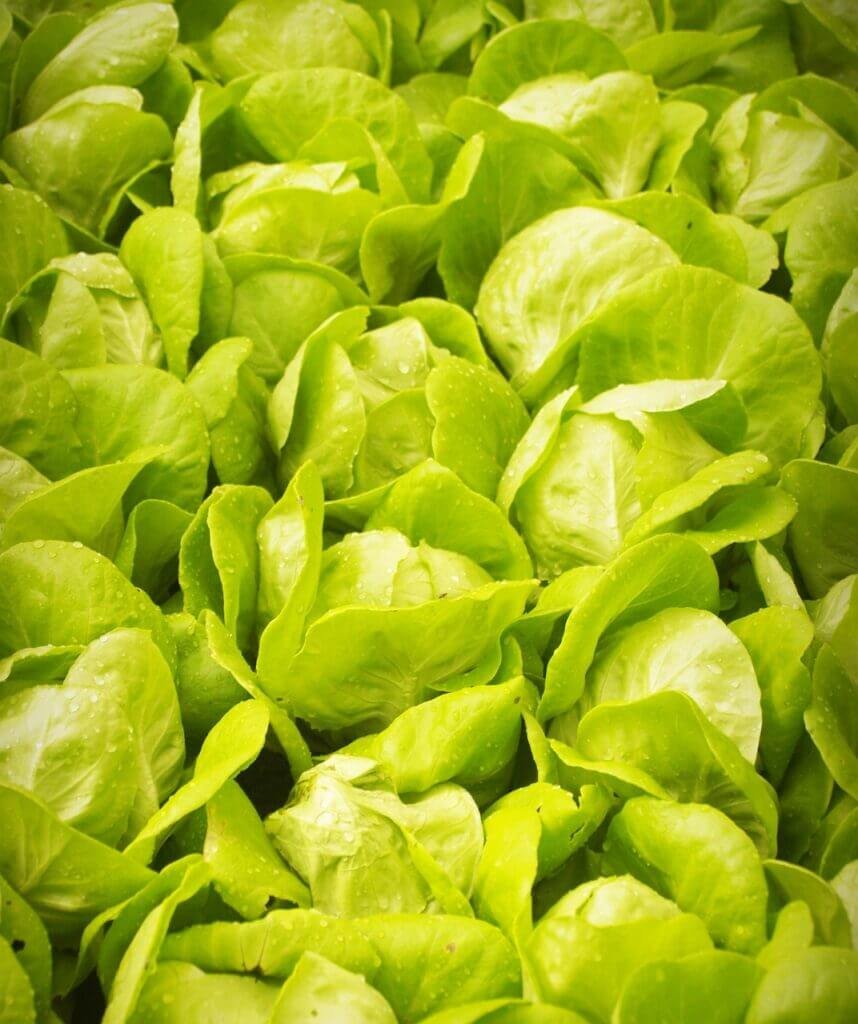If you’ve ever wondered how to create a flourishing garden in the midst of a bustling city, look no further than a hydroponic system. Whether you’re a seasoned gardener or a beginner with a penchant for greenery, this innovative method of urban gardening offers a multitude of benefits. From conserving water to maximizing space efficiency, hydroponics is revolutionizing the way we approach cultivation in urban environments. So, if you’re ready to discover the surprising advantages of this modern gardening technique, read on to unlock the secrets of a thriving city garden with hydroponics.

Improved use of space
No need for soil
One of the major benefits of using a hydroponic system for city gardening is that you do not need soil. Instead, plants are grown in a nutrient-rich water solution. This means that you can set up a garden virtually anywhere, regardless of whether you have access to fertile soil or not. Whether you have a rooftop, balcony, or even just a small corner in your apartment, hydroponic gardening allows you to make the most of your available space.
Can be set up in small spaces
Another advantage of hydroponic systems for city gardening is their ability to be set up in small spaces. Traditional gardens usually require a large plot of land, but with hydroponics, you can utilize vertical space effectively. By using specific techniques like vertical gardening or tower systems, you can grow a wide variety of crops in a compact area. This is especially advantageous in densely populated urban areas where space is limited.
Vertical gardening potential
A key feature of hydroponic systems is the potential for vertical gardening. This method allows you to maximize your garden’s potential by utilizing every inch of available space. By stacking planters or using vertical growing towers, you can grow a larger quantity of plants in a smaller footprint. Vertical gardening not only makes efficient use of space but also creates an impressive visual display, adding to the aesthetic appeal of your urban garden.
Water efficiency
Reduced water usage
Hydroponic systems are designed to be highly water-efficient. Unlike traditional gardening methods that rely on soil to retain moisture, hydroponics directly delivers water and nutrients to the plant’s roots. This reduces water wastage significantly, as there is no runoff or evaporation. The water used in a hydroponic system is constantly recirculated, minimizing the overall amount of water required for plant growth. This makes hydroponics an eco-friendly choice for city gardening, especially in areas where water is scarce.
Ability to recycle and reuse water
Additionally, hydroponic systems allow for the recycling and reuse of water. The water that is not absorbed by plants can be collected and filtered before being reintroduced into the system. With proper monitoring and maintenance, this cycle of water can continue indefinitely, resulting in even greater water conservation. By reusing water, hydroponic gardens contribute to sustainability efforts, making them an excellent option for city dwellers looking to minimize their environmental impact.

Year-round gardening
No dependence on seasons
One of the most significant advantages of hydroponic systems for city gardening is the ability to grow plants year-round without being limited by seasonal changes. Traditional gardens are heavily reliant on the climate and seasons, with certain plants only thriving during specific times of the year. In contrast, hydroponic gardens provide complete control over the growing environment, allowing you to create the ideal conditions for plant growth regardless of the season. This means that you can enjoy fresh, home-grown produce all year long.
Ability to control climate
Hydroponic systems enable precise control over the growing environment, including temperature, humidity, and lighting. This allows you to optimize the conditions for plant growth and tailor them to the specific needs of different crops. By adjusting these factors, you can mimic the ideal climate for each plant, maximizing their growth and yield potential. This level of control is particularly beneficial in urban areas where the outdoor climate may not be conducive to certain plants or during extreme weather conditions.
Higher crop yield
Optimized conditions for plant growth
By utilizing hydroponic systems in city gardening, you can provide plants with the optimal conditions for growth, leading to increased crop yields. The controlled environment ensures that plants receive the right amount of light, water, and nutrients. In traditional gardens, factors like soil quality, exposure to pests, and unpredictable weather can hinder plant growth. In contrast, hydroponic gardens eliminate these variables, allowing plants to thrive and produce higher yields consistently.
Continuous harvesting
Another advantage of hydroponic systems is the potential for continuous harvesting. Traditional gardens often follow seasonal patterns, with plants maturing at different times. However, in a hydroponic setup, plants can be grown in a staggered manner, allowing for a continuous harvest throughout the year. By spacing out plantings and implementing crop rotation, you can ensure a steady supply of fresh produce without depending on external suppliers. This advantage is particularly valuable in city gardening, where access to fresh, locally-grown food is limited.

Better control over nutrient supply
Precise nutrient balance
Hydroponic systems provide precise control over the nutrient supply to plants. The nutrient-rich water solution in which the plants are grown allows for direct absorption of essential elements. By carefully monitoring and adjusting the nutrient levels, you can ensure that plants receive the ideal balance of nutrients required for their growth. This precise control eliminates the risk of nutrient deficiencies or excesses, resulting in healthier plants and improved crop yields.
No competition from weeds
In traditional gardens, plants often compete with weeds for nutrients and space. However, hydroponic gardens eliminate this competition by removing the need for soil. Without soil, there is no medium for weed growth, effectively eliminating weed-related problems. This not only simplifies garden maintenance but also reduces the need for harmful herbicides or manual weeding. By eliminating weed interference, hydroponic systems allow plants to fully utilize the available resources, further enhancing their growth and productivity.
Reduced pest and disease problems
Isolation from soil-borne pests
Hydroponic systems offer isolation from soil-borne pests, which can be a major issue in traditional gardens. In soil-based gardens, pests and diseases often reside in the soil and can easily attack plants. By eliminating soil, hydroponics significantly reduces the risk of soil-borne pests. This isolation minimizes the need for chemical pesticides and reduces the chances of plant damage or disease transmission. It also contributes to a cleaner and healthier urban environment, making hydroponic city gardens a sustainable choice.
Easier pest management
Hydroponic systems provide easier pest management compared to traditional gardens. With the absence of soil, pests have fewer hiding places and fewer entry points into the garden. Additionally, the controlled environment of hydroponics makes it easier to spot and control pest infestations promptly. Integrated pest management techniques, such as the use of beneficial insects or organic pest control methods, can be effectively employed in hydroponic gardens. This reduces the reliance on chemical pesticides and promotes a more ecological approach to pest management.
Less labor-intensive
No soil preparation or weeding
Maintaining a hydroponic system for city gardening requires less physical labor compared to traditional gardening methods. With hydroponics, there is no need for labor-intensive tasks like soil preparation or weeding. Soil-less gardening eliminates the laborious process of tilling, soil amendment, and weed removal. This saves both time and effort, making hydroponics an ideal choice for busy urban dwellers who want to enjoy the benefits of gardening without extensive manual labor.
Automated systems available
Furthermore, hydroponic systems offer the advantage of automation. Various automated systems are available, such as timed watering, nutrient dosing, and lighting controls. These systems can be programmed to provide the necessary inputs to the plants at the right time and in the right quantities. Automated systems minimize manual intervention, ensuring that plants receive the optimal growing conditions consistently. This level of automation not only reduces labor requirements but also promotes efficient resource utilization.
Decreased environmental impact
Reduced need for pesticides and fertilizers
Hydroponic systems have a reduced need for pesticides and fertilizers compared to traditional gardens. With precise nutrient delivery and isolation from soil-borne pests, hydroponic plants are inherently healthier and more resistant to diseases. This significantly reduces the need for chemical pesticides and fungicides, making hydroponic gardening an environmentally friendly choice. Additionally, the controlled nutrient supply ensures that plants receive adequate nutrition, minimizing the use of fertilizers and preventing nutrient runoff that can harm the environment.
No soil erosion
Soil erosion is a common problem in traditional gardening, particularly in urban areas where space is limited. However, hydroponic systems completely eliminate the risk of soil erosion. Without soil, there is no exposure to wind or water erosion, preserving soil integrity and preventing sediment from entering waterways. This not only helps maintain a healthy urban ecosystem but also contributes to the overall sustainability of city gardening.
Improved plant health
Increased oxygen availability
In hydroponic systems, plant roots are directly exposed to oxygen-rich water, ensuring optimal oxygen availability. This increased oxygen uptake promotes healthier root development and enhances overall plant growth. In traditional gardens, compacted soil can lead to poor root aeration, which negatively affects plant health. With hydroponics, plants have unrestricted access to oxygen, resulting in faster and healthier growth. This oxygen-rich environment also prevents root diseases caused by anaerobic conditions, further improving plant health and robustness.
Faster and healthier growth
The controlled environment and optimized growing conditions in hydroponic systems foster faster and healthier plant growth. With the precise control of nutrient supply, water availability, and climatic factors, plants can grow at their maximum potential. This accelerated growth rate allows for shorter crop cycles, enabling more frequent harvests. Additionally, healthier plants are more resistant to pests and diseases, reducing the need for chemical interventions. The combination of fast and healthy growth contributes to higher crop yields and overall garden productivity.
Aesthetic appeal
Modern and attractive urban farming
Hydroponic systems add a modern and attractive element to urban farming. The sleek design and vertical gardening potential of these systems make them visually appealing, especially in urban settings. Hydroponic gardens can be integrated into apartment balconies, rooftop terraces, or even in small indoor spaces, bringing greenery and freshness to urban environments. The unique aesthetics of hydroponics make city gardening more visually enjoyable and encourage wider adoption of sustainable gardening practices.
Potential for creative designs
Another advantage of hydroponic systems is the potential for creative and innovative designs. Vertical gardening, in particular, offers endless possibilities for artistic arrangements and visually striking displays of plants. By combining different plant varieties, colors, and textures, you can create visually stunning urban gardens that double as works of art. These creative designs not only enhance the aesthetic appeal of your city garden but also inspire others to explore hydroponic gardening and its myriad benefits.
In conclusion, the benefits of using a hydroponic system for city gardening are numerous and wide-ranging. From improved space utilization to water efficiency, year-round gardening, higher crop yields, better nutrient control, reduced pest and disease problems, decreased labor requirements, and environmental sustainability, hydroponic gardens offer a host of advantages for urban dwellers. Additionally, hydroponic systems improve plant health, provide aesthetic appeal, and allow for creative designs, making city gardening a rewarding and enjoyable experience. So, whether you have a small balcony or a large rooftop, consider harnessing the power of hydroponics to create your own thriving urban garden.


